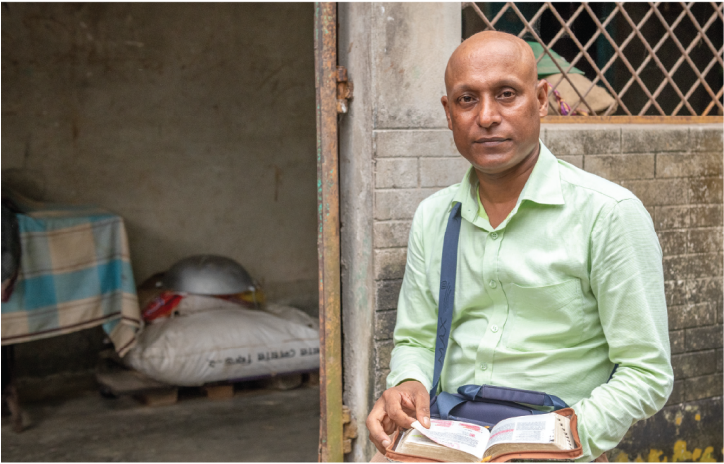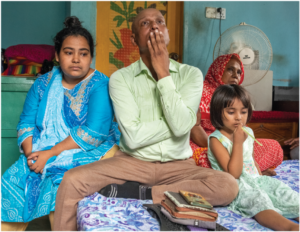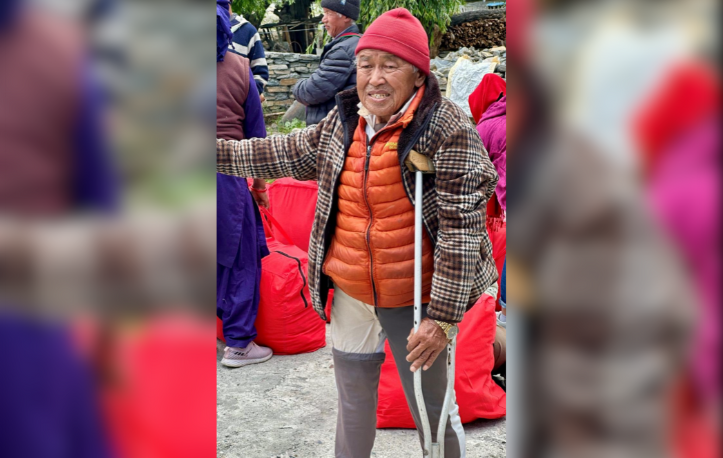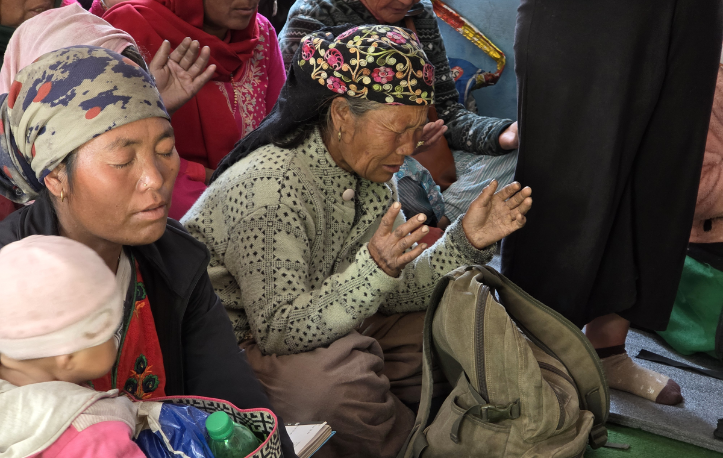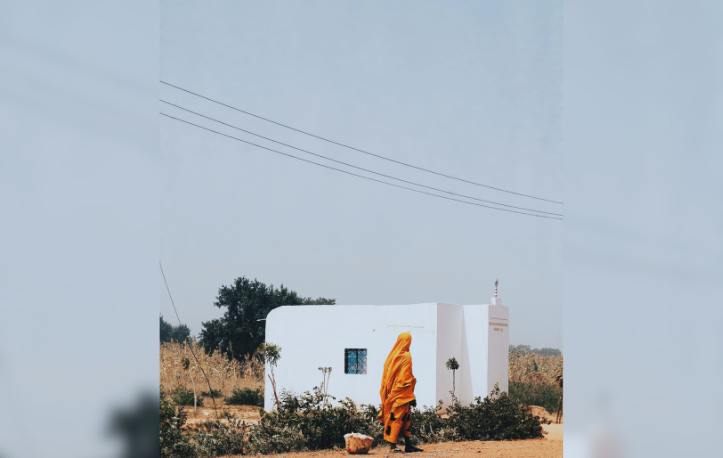Omar’s passion for proclaiming the truth of Christ followed naturally and almost immediately after his first exposure to the gospel.
As he sat in a park one day, a man walked up to him and handed him a gospel tract. Omar, then 21, opened the tract and read it for 20 minutes while the man stood next to him.
“Do you have any questions?” the man asked.
“Where am I in this?” Omar wondered aloud.
He had just read for the first time that Jesus Christ had died for him. Knowing nothing about Jesus, Omar questioned everything in that moment. Determined to learn more, he soon bought a Bible and began scanning its pages to find the parts about Jesus. One key passage that caught his attention was
John 14:6, in which Jesus says, “I am the way, and the truth, and the life. No one comes to the Father except through me.”
“After that, I decided to move from Having faced false accusations, imprisonment and an attempt on his life, a pastor in Bangladesh remains focused on sharing the gospel. Islam to Christ,” Omar said.
Omar, who is now 42, said the next five years following his salvation were like living in “a wilderness”. He knew no other Christians and knew of no local churches. Sensing the need for worship and study, he began to sing and pray through the Psalms and study the Scriptures.
When he read Matthew 28:19, “Go therefore and make disciples of all nations, baptising them in the name of the Father and of the Son and of the Holy Spirit”, Omar suddenly saw the proclamation of the gospel as the highest form of worship. But others would soon see him as a threat.
Accepting Rejection
Omar first shared the gospel with his mother. Despite her tender heart, however, she grew angry with her son. “My mother only knew [Jesus] as a prophet,” Omar said. “She didn’t think he could do other things.”
His father and siblings responded even more harshly. They kicked him out of the house and disowned him. “I felt so hurt,” Omar said. “They are my family, the most loving people, and I’m telling them the truth but they are not accepting … It was really hard.”
Omar moved in with a friend, supporting himself by cleaning buses and assisting passengers. In Bangladesh’s bustling cities, countless colorful buses run loads of people across town nonstop, which gave Omar the idea of using his job as a way to share the gospel. Omar said that while most people would listen to him, few placed their faith in Christ. Many, he said, responded with bewilderment, which fueled his desire to tell even more people about what Jesus had done for them.
“It was like I became addicted to telling people about Jesus,” he said.
“It was my job, my responsibility. I felt good when I could share. ”After work, Omar often talked to co-workers about his faith, but they usually told him to stop and called him names. “I didn’t care,” he said. I just kept trying every day.”
Despite the rejection he received day after day, he never considered stopping his work. “My job is to keep telling people,” Omar said. “I don’t know who is going to accept it. Only God knows that.”
Framed
One day in 2014, a stranger approached Omar and asked to hear what he had been sharing with others. The man, a member of a fundamentalist Islamic group, asked Omar to join him and other members of the group for a discussion.
After agreeing to the meeting, Omar showed up with a Bible and a Koran, then proceeded to show the men how the two books differ in their portrayals of Jesus Christ. He also told them plainly that he had put his faith in the Jesus of the Bible.
Outraged by Omar’s boldness, one of the Islamists suddenly grabbed the Koran from him and — to Omar’s great surprise — tore it in two. He then scolded and threatened Omar, demanding that he leave. The next day, while Omar was at his friend’s house, the Islamist’s bizarre actions began to make sense. Five police officers arrived to arrest Omar for tearing up the Koran.
Although Bangladesh’s constitution guarantees religious freedom, it also declares Islam the official state religion. In addition, the country’s laws discourage blasphemy and prohibit any action that “hurts religious sentiment”.
Police questioned Omar about the torn Koran but refused to believe his explanation of what happened. Then, they led him to a dark room, where two officers took turns beating him with batons.
They asked questions like, “Why are you spreading Christianity?” and, “How much money are you being paid?” Omar replied with simple honesty that he hadn’t been paid anything to follow Christ. “I am a sinner,” he told them. “I need a Saviour in my life.”
The officers blindfolded Omar and tied him in torturous positions. At one point, they tied his wrists and ankles together behind his back and hung him upside down. They beat him all over his body, including on the soles of his feet. “The scariest thing was when I was spinning,” he recalled tearfully. “It was horrible for me.”
On the days when Omar was beaten, he ate nothing. “The hardest part,” he said, “was after they tortured me. I was thirsty and asked for water, [but] they did not give it to me.” He said they often gave him water only so he could take painkillers, which enabled them to prolong the beatings.
Omar often lost consciousness during the beatings, but when he was alert he would pray. During one of those prayerful moments, he said he had a vision of Christ.
“When I was getting beaten and tortured, I felt more peace in God,” he said. “I felt some of the pain that Jesus did when he died for us. Getting beaten was like a blessing for me. I was really happy for that.”
Finding Peace
After four days of torture, Omar was taken to a hospital, and his case proceeded on through the legal system. At the hospital, doctors gave him multiple medications, including one that caused permanent hair loss. The beatings, he learned, had fractured discs in his spine, affecting his ability to walk.Then, on 19 September 2014, he was sent to prison. Omar was one of nearly 150 prisoners crammed into a cell built to hold only 60. The cell was so packed that everyone had to lie on their side in order to sleep at night. Among murderers and other hardened criminals, Omar was the lone Christian.
The Muslim prisoners, who hated him for what he had allegedly done to the Koran, routinely beat him and stole his food. And the Hindus didn’t like him much either.
“The hardest part,” he said, “was looking out my window and asking God, ‘Why am I here? Why am I not outside? What is my crime?’” After befriending two other prisoners, though, and sharing the gospel with them, Omar started to gain a sense of peace. “Then I felt,
‘Maybe that is why God sent me here’,” he said.Omar borrowed a copy of the New Testament from the prison library and often read it with his friends. The account of Peter’s imprisonment in the Book of Acts gave him hope. “I felt peace in my heart because I am a child of God,” he said.
On 11 November 2015, Omar was released from prison while the court continued to review his case. His only requirement was to report to
the court each month. “I was excited when I was given freedom from jail,” he said. “I thought that maybe I would never be released. I came out and saw the sky and all the things, the people. Finally, I was free.”
Left for Dead
Following his release, Omar returned to his village and started sharing the gospel again. But one evening as he walked through his
village alone, he was confronted by five Islamists from the group that had framed him.“You are a very bold guy,” one of them said. “We want to see yourheart.” The man then slashed Omar’s chest with a knife, and the Islamists fled as he cried out and fell to the ground bleeding.
Although he knew he probably needed stitches, Omar chose not to go to the hospital for fear the Muslim doctors might poison him if
they learned about the case against him. Instead, he went home and treated the wound himself.In shock over the attack, he remembered what he had read about persecution in the Bible. “Like the apostles, [we] will be martyred and
persecuted,” he said. “I took those [to heart] and prepared to sometime maybe be a martyr.”After healing from the attack, Omar began attending a Bible college, and he became a pastor in September 2016.
Today, he oversees 13 house churches. In addition, he provides biblical teaching and counselling for persecuted Christians at a
VOM-supported safe house and disciples new believers.Omar said that throughout his years of ministry, he has led more than 150 people to Christ. Looking back, he is thankful for the
persecution he’s endured as a result of his witness. He said he believes it has strengthened his faith.“If I did not see persecution,” he said, “maybe I would go back to my previous religion.”
Still Grateful
Omar is thankful for the way God has used persecution to strengthen his faith, but he is haunted by those past incidents as well as ongoing, daily reminders of what his faith has cost him. Family members call him regularly to insult him and demand that he return to Islam; his hair hasn’t grown back; and he continues to struggle with pain, using a special apparatus to stretch his back every morning.
He is most haunted, however, by his unsettled legal case and uncertain future. He must still report to the court every month and
has accrued significant legal fees. As his case now stands, he is likely to face 27 years in prison, effectively a life sentence. Although unlikely, a death sentence is even a possibility.“It is God’s plan,” he said. “I am ready to go to prison for 27 years or to be hanged, no problem.”
Omar’s greater concern is for his wife, Lucina, and their 5-year-old daughter, Sumaya. His mother-in-law, Runa, lives with them to help Lucina, but she is unable to help support them. Lucina worries about being alone again if her husband returns to prison, but she is trying to remain hopeful.
“This is a long, false case,” she said. “I depend on the Lord. I believe the Lord can do anything in our lives.”
Despite the uncertainty and stress resulting from Omar’s Christian work, Lucina supports his passion for sharing the gospel. “That is his work, to share the gospel,” she said. “All the time I am encouraging him.” With his wife’s support, Omar grabs his well-worn Bible, hops in
an auto rickshaw and travels to visit new villages. Whatever happens — whether his case is dismissed, he spends the rest of his life in prison or he faces death — Omar said he will continue to share with Muslims the eternal hope that he has in Christ. “Our life is temporary here,” he said. “I have a small amount of time to preach the gospel. I don’t believe that I will stop.”
